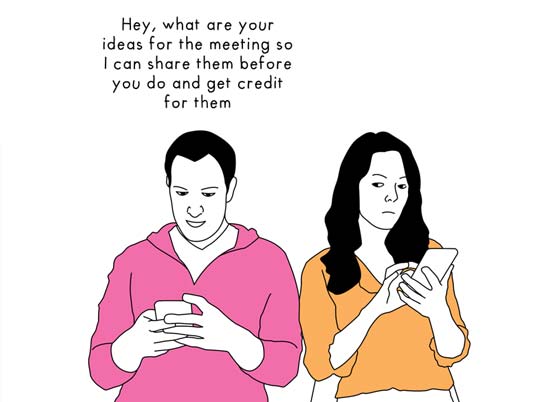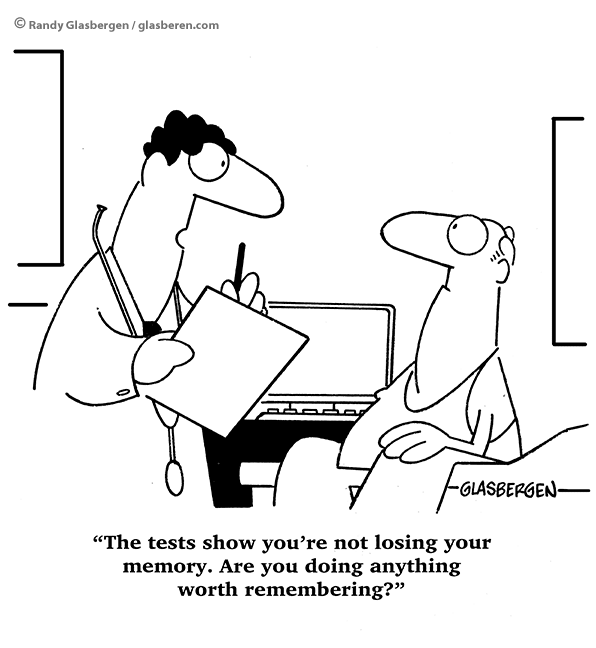 Many organizations are hampered by unhealthy attitudes among team members, including: territorialism (defending one’s turf), the silo effect (lack of communication and involvement among different divisions), posturing and manipulation, lack of shared knowledge (reluctance to share best practices), and competition among team members (competition between an organization and other similar organizations is healthy, but competition within an organization is undesirable).
Many organizations are hampered by unhealthy attitudes among team members, including: territorialism (defending one’s turf), the silo effect (lack of communication and involvement among different divisions), posturing and manipulation, lack of shared knowledge (reluctance to share best practices), and competition among team members (competition between an organization and other similar organizations is healthy, but competition within an organization is undesirable).
Most of these roadblocks can be eliminated by one major concept: when all employees work together toward a common goal, and no one cares who gets credit for progress, the workplace-environment becomes more healthy.
There are many reasons why this attitude is so beneficial.
Most progress is made by teams, not individuals.
In their must-read book, The Knowledge Illusion, Sloman and Fernbach discuss the fact that most major accomplishments are the work of teams of people, not individuals. They give the example of the discovery of the Higgs boson in 2012. It was a monumental event; it helped physicists understand the most fundamental theory of how the physical world works. In 2013 Peter Higgs and Francois Englert won the Nobel Prize in physics for their contributions to the effort. But the truth is, the Higgs boson would never have been discovered without the efforts of thousands of physicists, engineers, and students from almost forty countries. Nearly 3,000 key physics papers contributed to the discovery, and the people who funded, built, and ran the $6.4 billion CERN supercollider in which the observations were made obviously played an indispensable part.
In an organization, major progress is made by teams of people so credit should be widely distributed.
Employees should be primarily focused on the success of the organization, not personal advancement or aggrandizement.
As an employee, my overriding goal should be to contribute to the success of the organization. I am a servant to the organization; I should not intentionally use my position for personal gain. If the organization succeeds, I should be happy, even if my contribution is not acknowledged.
When you contribute to the success of a project, you gain invaluable experience that makes you a better person.
Throughout our lives and careers, we should continually develop personal core competencies that will accumulate and shape us into highly competent and productive people. These skills are best developed in real-life “boots on the ground” experiences, often provided by the organizations you serve. These training opportunities are invaluable. So even when your effort is not acknowledged, you’re gaining indispensable assets that make you a better person.
When you contribute to the success of a project, you will feel satisfied and contented with your good work.
When you work hard and produce results, you can enjoy a sense of accomplishment and contentment. You’ll also enjoy quite peace and satisfaction that comes from doing a good job. The apostle Paul taught, “Do your work as unto the Lord.”
More will be accomplished if everyone has this attitude.
If I am inordinately focused on whether or not I will be properly acknowledged for my work, I may slow down my pace of work, withhold helpful input, or even quit working on a project. If this attitude is widespread among team members it will inhibit progress, but if it’s not a factor, the team can reach its full potential.
This attitude is an expression of a powerful truth: prefer others.
The apostle Paul taught, “Put yourself aside, and help others get ahead” (Philippians 2:4, The Message). This verse espouses one of the deepest principles of Christ-like living: we are to prefer others and help them get ahead. We should rejoice in another person’s success, even if it means the diminution of our own.
In most cases, individuals who contribute to the success of an organization will eventually be recognized.
In the long run, if you continually contribute to the well-being of your organization, you will probably be recognized. Not always, but usually.
[Note to leaders. In this essay, I’m not suggesting that you ignore the accomplishments of individuals. You should acknowledge and reward individuals who excel. This essay is a message to team members who do not receive the accolades they deserve. Consider: Are there unsung heroes in your organization that you have failed to recognize?]
[reminder]What are your thoughts about this essay?[/reminder]

 In his celebrated book, Thinking, Fast and Slow, Daniel Kahneman distinguishes between two types of thinking; he calls them System 1 and System 2 thinking. System 1 thinking engages our intuition. System 2 thinking requires deliberation and reflection.
In his celebrated book, Thinking, Fast and Slow, Daniel Kahneman distinguishes between two types of thinking; he calls them System 1 and System 2 thinking. System 1 thinking engages our intuition. System 2 thinking requires deliberation and reflection. Five years ago my life changed with the birth of my first grand-baby—Benjamin. I now embrace the unassailable truth that grandchildren are God’s reward for not having killed your own. This picture was taken at my vineyard; Benjamin and I had just enjoyed a day together, playing and working and we were musing over the result.
Five years ago my life changed with the birth of my first grand-baby—Benjamin. I now embrace the unassailable truth that grandchildren are God’s reward for not having killed your own. This picture was taken at my vineyard; Benjamin and I had just enjoyed a day together, playing and working and we were musing over the result. Here’s a picture of a necklace that I had when I was a child. I wore it periodically during the first 18 years of my life. I can’t remember where it came from or if it had any special meaning. The necklace is made from three colored pieces of acrylic—green, orange, and white—cut in the shape of a scalene triangle.
Here’s a picture of a necklace that I had when I was a child. I wore it periodically during the first 18 years of my life. I can’t remember where it came from or if it had any special meaning. The necklace is made from three colored pieces of acrylic—green, orange, and white—cut in the shape of a scalene triangle. In his extraordinary book, Thinking, Fast and Slow, psychologist Daniel Kahneman teaches that we have two mental operating systems; there are two expressions of self: the experiencing self and the remembering self.
In his extraordinary book, Thinking, Fast and Slow, psychologist Daniel Kahneman teaches that we have two mental operating systems; there are two expressions of self: the experiencing self and the remembering self.